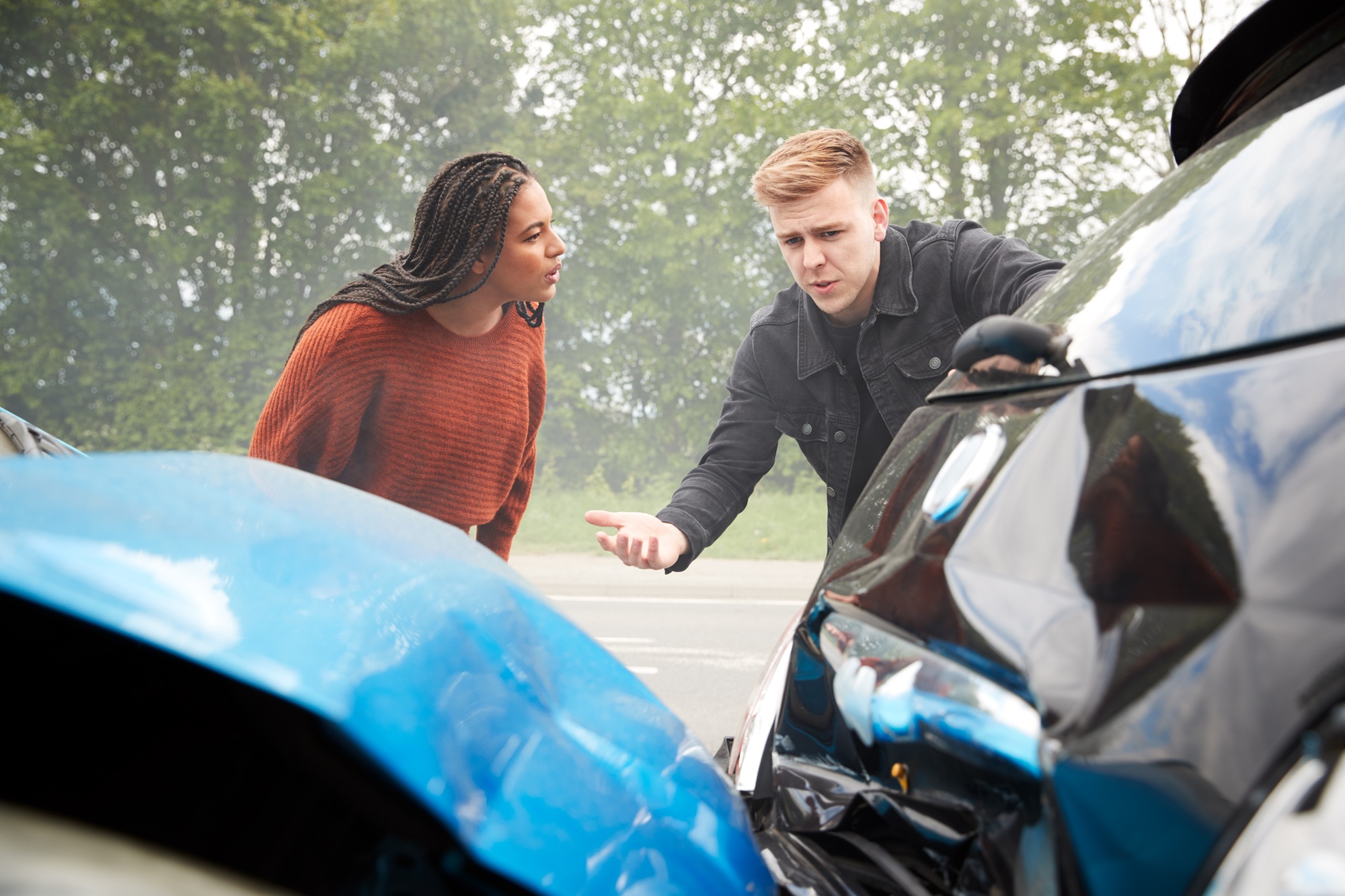It’s incredibly stressful to be in a car accident, especially if it’s not your fault. Understanding car accident laws can dramatically affect the outcome of car accident cases, as you’ll see below.
In this post, you’ll learn about Nevada’s car accident laws, and we’ll give you practical advice on protecting yourself after a car accident so you can receive a fair settlement.
Nevada Car Accident Laws That Could Affect Your Claim
- Nevada’s at-fault system holds responsible drivers accountable.
- The statute of limitations to file a personal injury claim is two years; property damage claims have a three-year statute of limitations.
- Comparative negligence may impact the compensation you can receive through the claims process.
- Drivers must report car accidents to the Nevada DMV within 10 days of the crash it the accident resulted in injury, death or property damage exceeding $750.00.
- All Nevada drivers are required by law to carry mandatory minimum liability insurance.
Nevada’s At-Fault Car Accident Laws
In no-fault states, drivers submit car accident claims to their insurers, regardless of who caused the car accident.
Thirty-eight states plus the District of Columbia have an at-fault system for personal injury claims. Nevada is one of these states, which means drivers who cause car accidents through recklessness or negligence are legally responsible for any resulting damages or injuries under Nevada car accident law. Nevada fault law holds negligent drivers accountable and makes seeking compensation from the at-fault driver’s insurance possible.
Nevada’s at-fault system means you can file a claim with the at-fault driver’s insurance company and receive compensation for your injuries and damages. Damages included in a personal injury claim are vehicle repairs, medical expenses (past and future), property damage, wage loss and harder-to-quantify damages like emotional distress, suffering, and changes in relationships and family life because of your accident.
How Do I Calculate My Damages?
Car accident damages fall into two categories: economic and non-economic damages.
Economic damages are much easier to calculate through receipts and documents. Examples include medical bills, vehicle repairs, and lost wages from time off work to recover.
Conversely, non-economic damages are more challenging to calculate as they are less tangible: pain and suffering, emotional distress, loss of companionship, loss of enjoyment of life.
A Nevada car accident attorney can provide an accurate valuation of your claim.
Determining Fault for a Car Accident Claim in Nevada
Establishing fault in Nevada involves the following:
- Police report: Law enforcement documentation is an unbiased account of the accident and is foundational to this process.
- Accident scene evidence: Photos, videos, witness statements, physical debris, and more show who’s at fault.
- Insurance adjusters: These insurance company representatives analyze the evidence and suggest the percentage of fault, which ultimately impacts total compensation.
Determining Fault in a Personal Injury Lawsuit
Sometimes, the best legal pathway for you is to file a personal injury lawsuit against the at-fault party. In that case, your legal team will need to prove the following:
- Duty of care: The other driver was ethically obligated to drive safely.
- Breach of duty: The other driver failed to drive safely.
- Causation: Their unsafe driving directly caused the accident.
- Damages: You experienced quantifiable harm as a result of the accident.
Nevada’s Statute of Limitations Is Two Years
By Nevada law, you generally have up to two years from the time of the accident to file a personal injury claim with the at-fault driver’s insurer, including wrongful death claims. You have three years to file a claim for property damage.
After a car accident in Nevada, you may need to focus on your immediate medical and financial needs. However, if you fail to file a personal injury claim within the legal timeframe, you risk losing the opportunity to seek compensation for your injuries, property damage, lost wages, or any suffering and emotional distress.
Exceptions to Nevada’s Statute of Limitations
Some circumstances extend (toll) or reduce the statute of limitations in Nevada, which we’ll explain below. If you’re unsure if these apply to your auto accident, consulting an experienced personal injury lawyer is best.
Minor Victims
When car accident victims are minors, the two-year filing timeframe starts when they turn 18. So, if your child was 12 at the time of the accident, they would have eight years total to file an insurance claim.
Defendant Leaves Nevada
Should the at-fault driver leave Nevada after the accident but before you file a personal injury lawsuit, Nevada law may provide for a pause in the statute of limitations. That way, the person responsible cannot dodge accountability by leaving the state.
Discovery Rule
It is not uncommon accident victims to have a delay in symptoms and presentation of injuries. For example, the initial adrenaline and shock from the accident may wear off, revealing an otherwise unknown injury or a more severe injury than initially thought. For example, the headaches, nausea, fatigue, and memory loss common with traumatic brain injuries can take time to set in.
Because of this, Nevada honors the “Discovery Rule,” which may allow the statute of limitations to start at the time of the injury’s discovery rather than the accident date.
Brent Harsh Law works with clients to clarify how these Nevada car accident laws apply to them. Contact us for a free consultation on your case and to learn how you can receive fair compensation.
Nevada’s Comparative Negligence Law
In Nevada, you’re subject to a modified comparative negligence rule (NRS 41.141), which means you can still claim damages, even if you were partially at fault for the accident. However, the comparative negligence rule only applies if your percentage of fault is 50% or less. Unfortunately, if the evidence shows you’re more than 50% liable, you cannot recover damages.
Settlement totals depend on the extent of the damage, severity of injuries, and comparative negligence. Car accidents may result in settlement offers anywhere from a couple of thousand dollars to millions, all of which can be subject to this law.
For example, if you’re awarded $10,000 in a settlement, you re found to be 25% at fault for your accident, you’d ultimately receive $7,500. Under Nevada’s comparative negligence rule, even partial liability can significantly reduce your overall compensation, so it’s vital to have strong evidence determining fault and ensuring maximum compensation.
Your word against the other driver’s isn’t always enough; Nevada requires accident victims to prove fault, and comparative negligence means there’s a chance you may receive less of a settlement because of your actions leading up to and during the accident. Comparative negligence adds complexity to the evidence-gathering and settlement negotiation processes. Our attorneys at Brent Harsh Law can handle this complexity for you.
Reporting Your Auto Accident to the Nevada DMV
In Nevada, you must report any car accident to the DMV involving injuries, death, or property damage exceeding $750. Accident victims must file the Nevada DMV SR1 Report of Traffic Accident Form within 10 days of the crash, as long as law enforcement did NOT come to and investigate the scene.
Nevada Requires Drivers to Carry Auto Insurance
Nevada car insurance laws require every driver to carry minimum liability coverage to protect accident victims financially. The baseline insurance requirements are as follows:
- $25,000 per person for bodily injury
- $50,000 per accident for bodily injury
- $20,000 per accident for property damage
In the case of an accident, insurance adjusters will investigate to determine liability, the extent of the damages, and potential claim value.
In truly catastrophic accidents, these minimum insurance requirements will do little to cover your costs and recovery. To protect themselves financially, many drivers carry additional coverage, including personal injury protection (PIP) and uninsured motorist (UM/UIM) coverage.
Uninsured Motorist Coverage
Though Nevada requires motorists to carry auto insurance, some still flout the law. If your accident involves an uninsured driver, there is no insurance company to file a claim against. If you carry uninsured motorist coverage, you’ll file the claim with your insurance, which should protect you from these unfortunate situations, including hit-and-run accidents.
What If Somebody Who Isn’t On My Insurance Was Driving?
If you gave the person driving your car permission to drive it, your insurance will likely provide primary coverage. The other driver’s insurance may supplement the claim if the damages exceed your policy limits. If the driver did NOT have your permission, you might expect your insurance to deny the claim, and financial responsibility will fall to that driver.
How Long Do Insurers Have to Respond to My Claim?
Insurance companies have to respond to a claim within 10 days of you filing it. Once you provide proof of loss, the insurer has 30 days to accept or deny your claim unless they reasonable need additional time. After that, you’ll work through settlement negotiations, and if you accept a settlement, the insurer has 30 days to remit payment.
If insurance denies your claim or the settlement offer is too low, you can file a personal injury lawsuit against the at-fault party with the help of a law firm like Brent Harsh Law.
Protect Yourself After a Nevada Car Accident
Following a car crash, you’re not legally required to do any of the following, but skipping these actions can work against your Nevada car accident case. Though they require some effort, these actions might make the difference in your receiving fair compensation.
Do I Have to Seek Medical Treatment?
Unless you’re 100% certain you received no bodily injury from the car accident, you should always be evaluated by a medical provider, whether that’s emergency personnel called to the scene, emergency room providers, or your primary care physician.
Not only does this ensure you receive the medical care you need, but it also starts a trail of medical records showing you were impacted by the accident, which can help with your claim.
Do I Have to Notify Law Enforcement?
Always call law enforcement to the accident scene. Having police there to officially document the accident will make it so it’s about the evidence, not your word against the other driver’s.
Do I Have to Exchange Information With the At-Fault Driver?
Always ask for contact and insurance information from the other driver or drivers. Keep it brief and do not discuss who is at fault during this exchange; simply ask for:
- Their full name
- Contact information
- Insurance information (insurer and policy number)
- Driver’s license number and registration
- Make, model, year, and color of the vehicle
- VIN
Should I Gather Evidence at the Scene?
As long as you’re medically stable, any evidence you document at the scene can support your claim. Use your cell phone to take photos from different angles of your car, damage to any surrounding structures, the other driver’s car, and your injuries.
When Should I Notify My Insurance Company?
Notify your insurance company as soon as possible.
What Information Do I Have to Provide Insurance Companies?
Always provide all necessary information to insurance companies when submitting a car accident claim. Anything you omit could leave you subject to less compensation than you deserve or penalties if it shows you’re fully or partially liable for the accident.
Your insurer will need:
- Accident date, time, and location
- Description of the accident, including weather conditions, traffic conditions, and traffic signals/signs
- Pictures and videos from the scene
- The other driver’s information (reviewed above)
- Witness contact information
- Police report
- Medical information (injuries, treatment received, medical expenses, etc.)
Should I Settle Before Going to Court?
By working with an experienced car accident attorney, you have somebody who understands the nuances of car accident lawsuits. They can advise whether insurance offers a fair settlement or whether justice will come from a car accident lawsuit.
Most (over 90%) cases settle out of court, but because Nevada car accident cases can be particularly complex, we recommend you consult an experienced attorney to help with the claims process.
Unfortunately, insurance companies often attempt to settle cases at the least amount possible. At Brent Harsh Law, we’ve seen many accident victims take initial lowball offers, which are less than they should receive based on the evidence. Our team protects against this.
The Benefits of Hiring a Car Accident Lawyer
Going through a car accident is already an overwhelming experience without having to navigate Nevada’s car accident laws, auto insurance policies, and your financial and physical recovery process.
A car accident lawyer can help you understand your rights and protections under Nevada law.
Filing car accident claims requires a lot of administrative work. A personal injury attorney will take the lead, meticulously gathering all the evidence and communicating with insurance companies on your behalf. That way, you can prioritize your recovery.
While you may worry about the cost of hiring a skilled attorney, many work on a contingency fee basis, meaning you only pay them if they win your case.
Speak With Brent Harsh Law Today
Have you been in a car accident recently? Understanding Nevada’s laws can empower you to know your rights and protect yourself when it matters most. But you don’t have to go through a claims process alone, especially if you have serious injuries, mounting medical expenses, an uncertain future at work, and a family that needs you.
During your free initial consultation, Brent Harsh Law will patiently answer your questions about Nevada car accident laws, evaluate your car accident claim honestly, and discuss your options for moving forward, including whether it’s smart to pursue a lawsuit.
Our team can compile evidence and analyze its strength, stopping at nothing until you have a strong car accident claim. We’ll handle Nevada car accident laws and negotiate with insurance companies so you can rest and recover. During an experience when somebody’s actions hurt you, and insurance companies prioritize profits, we do everything to protect your interests and recovery.
Do You Have Questions?
We Have Answers.
If you or a loved one has suffered a personal injury, it’s crucial you speak to a personal injury attorney who will go above and beyond for you to ensure you get the compensation you deserve. Contact us today to speak with one of our experienced personal injury lawyers.




 Pursu Agency
Pursu Agency